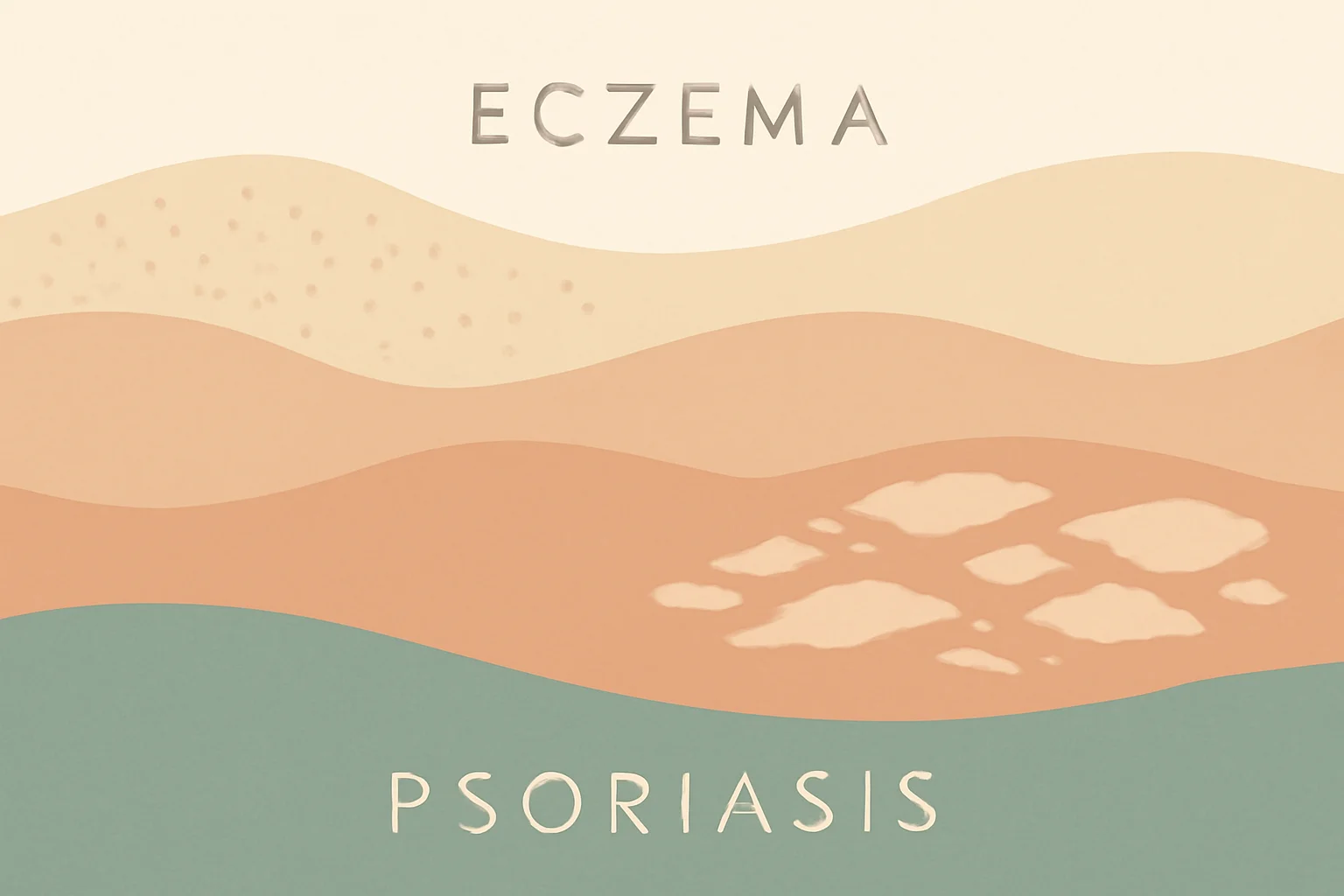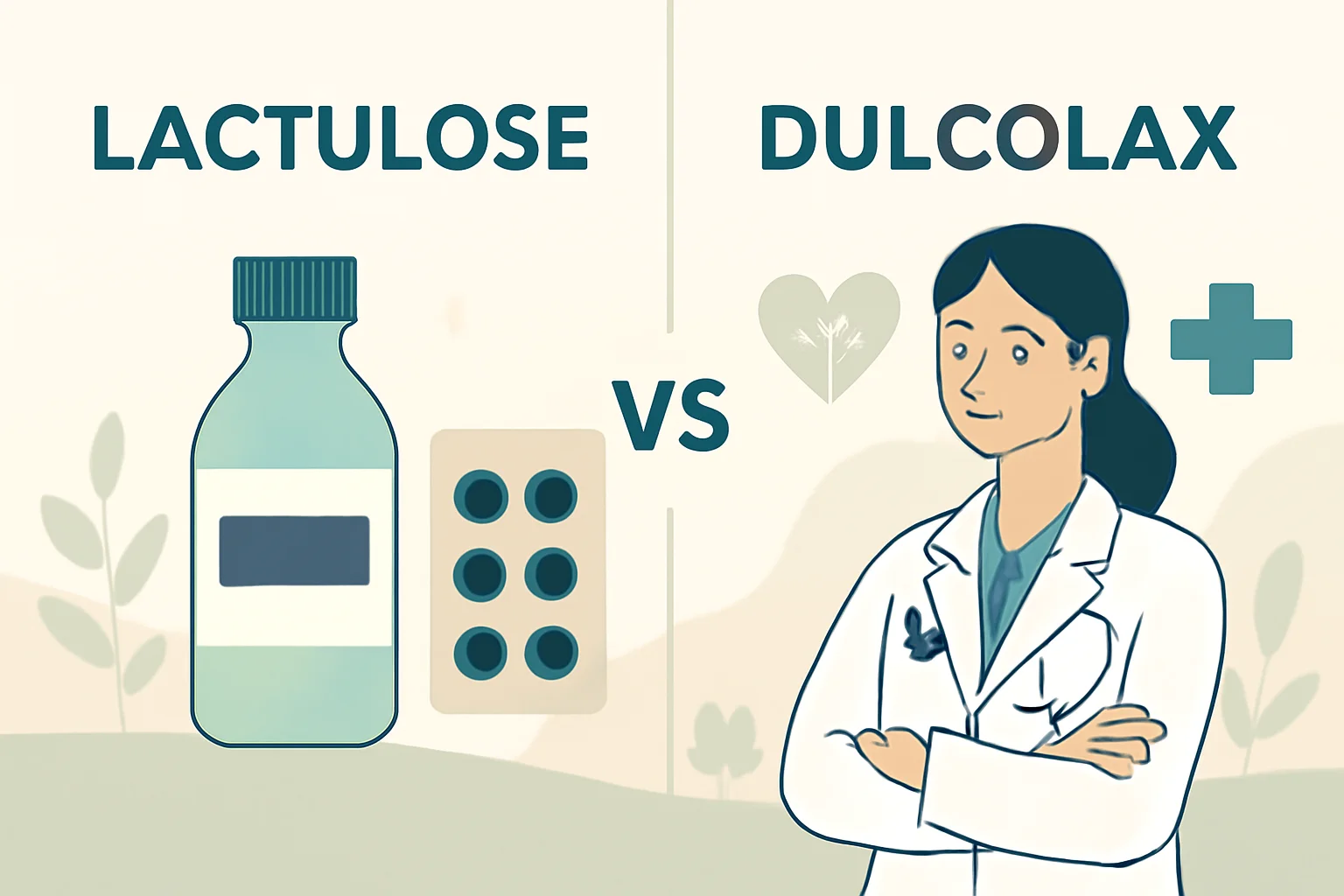
Eczema or Psoriasis? Differences and Treatment Options
The skin diseases encompass a wide spectrum and affect many people’s lives. Two common skin issues, eczema and psoriasis, show many similarities but also have fundamental differences. These conditions not only have physical effects but also psychological impacts on those affected, as the state of the skin often plays an important role in personal perception and self-esteem.
Eczema, also known as dermatitis, refers to an inflammatory condition of the skin that can be accompanied by itching, redness, and scaling. It often appears in childhood but can also occur in adults. Psoriasis, on the other hand, is an autoimmune disease characterized by the rapid renewal of skin cells, leading to the formation of red, scaly patches on the surface of the skin.
Distinguishing between the two conditions is important for proper treatment and symptom relief. A dermatological examination can help in making a diagnosis, but patients should also be aware of their symptoms and possible triggers. With the right information, we can better manage and understand these common skin problems.
Characteristics and Causes of Eczema
Eczema, or dermatitis, is a chronic skin disease that causes inflammation of the skin. The most common forms include atopic dermatitis, contact dermatitis, and seborrheic dermatitis. Eczema is particularly common among children, but it can also occur in adults. The disease can develop for various reasons, including genetic predisposition, allergic reactions, and environmental factors.
Areas of skin affected by eczema often itch, are red, and inflamed. Dryness and scaling of the skin are also characteristic, further exacerbating itching and discomfort. The symptoms of eczema generally appear cyclically, meaning they can flare up and subside periodically. Stress, weather conditions, and various irritants, such as soaps or detergents, can contribute to the worsening of symptoms.
Treatment for the condition typically involves the use of topical corticosteroid creams and moisturizers. Doctors may also recommend antihistamines to alleviate itching. It is important to note that eczema is not contagious, but due to the condition of the skin, patients often suffer from social and psychological issues, such as decreased self-esteem or anxiety.
Symptoms and Treatment Options for Psoriasis
Psoriasis, also known as psoriasis, is an autoimmune disease characterized by the excessive rapid renewal of skin cells. As a result, red, scaly patches appear on the surface of the skin, which can be painful and itchy. Psoriasis can manifest in many forms, with the most common type being plaque psoriasis, which is characterized by thick, scaly plaques on the skin.
The appearance and severity of the disease can vary from person to person. Some individuals may experience only mild symptoms, while others may have psoriasis that affects significant areas of skin. Triggers for psoriasis may include genetic predisposition, stress, infections, as well as certain medications and lifestyle factors.
Treatment for psoriasis is often complex. Treatment options include topical therapies such as corticosteroids and vitamin D analogs, as well as phototherapy and systemic medications. Newer biological therapies also show promising results in treating psoriasis, as they target the underlying causes of the disease rather than just alleviating the symptoms.
Psoriasis is not contagious, but it can significantly affect the quality of life of patients. Due to the condition of the skin, many may experience social pressure, which can increase anxiety and depression. It is essential for those suffering from psoriasis to receive appropriate medical care and feel supported in their environment.
Similarities and Differences Between Eczema and Psoriasis
Although eczema and psoriasis share many similarities, they also have fundamental differences. Eczema is generally an inflammatory response triggered by allergens or irritants, while psoriasis is an autoimmune disease characterized by the excessive renewal of skin cells.
Symptoms of eczema include itching, redness, and dryness, while the main characteristics of psoriasis are red, scaly plaques that can also be painful. Eczema often appears in the skin folds, such as the inner sides of elbows or knees, while psoriasis can appear on other areas of the body, including the scalp, elbows, and knees.
Their treatments also differ, as eczema is typically managed with topical creams and moisturizers, while psoriasis treatment often includes phototherapy and systemic medications. In both conditions, proper hydration of the skin and avoidance of triggers are crucial.
Diagnosis requires a medical examination, and it is important for patients to understand their condition to choose the most appropriate treatment. With the right information, we can more easily manage symptoms and improve our quality of life.
This article does not constitute medical advice. Always consult a doctor for health issues!

